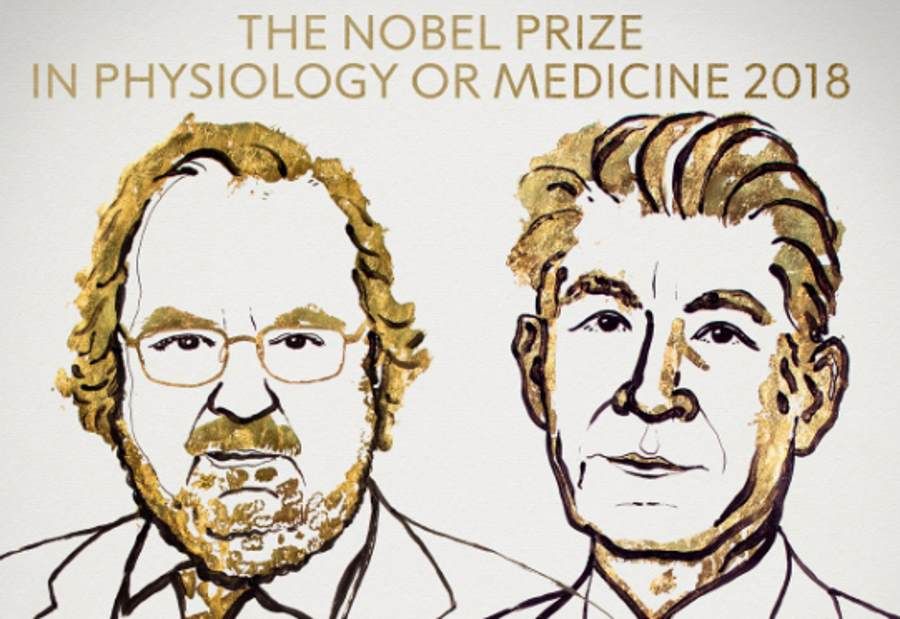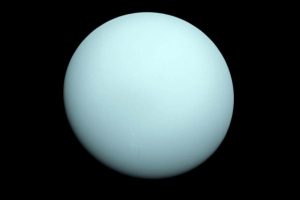Nobel Prize 2018 in medicine and physiology has been awarded

Nobel Prize 2018 in medicine and physiology awarded
The winners of the 2018 Nobel Prize in Physiology or Medicine are James P. Allison and Tasuku Honjo. The researchers were credited with developing anti-cancer therapies that involve unblocking the immune system’s action so that it attacks cancer cells.
As reported by the Karolinska Institute, whichorego assembly professorow chooses the winneroIn the Nobel Prize, James P. Allison studied a protein thatore acts as "inhibitor" of the immune system. – He realized the possibility of releasing this "brake" and release our cellorec immune system to attack tumors, the Karolinska Institute reported in a news release. This "brake" is referred to by experts as anow, as a negative regulation of the immune response.
Tasuku Honjo, on the other hand, has discovered a protein found in comoimmune cells and revealed that it acts roalso as "brake", that is, a mechanism that stops the immune system’s response, but has a different mechanism of functioning. Therapies based on his discovery proved strikingly effective in the fight against cancer.
– This year’s laureates have shown how theob rolar unblocking strategies "brakeow" The immune system can be used to treat cancer. Their findings are a turning point in our fight against cancer, the Karolinska Institute reports in a press release. American James P Allison and Japanese Tasuku Honjo have discovered that the body’s immune system can be used to treat cancerow.
Scientists looking for effective cancer therapies have long thought it was possible to harness the immune system to fight the disease. Despite the many prob failed to force the cellorek of the immune system to attack the comorks of the cancer. And this is partly because there is a mechanism in the human body that inhibits the action of lymphocytesow against attacking tumorsow. It wasn’t until the discoveries of this year’s Nobelow have allowed the release of „brake” allowing the immune system to attack a tumoroin cancer.
Allison studied located on lymphocytes, comorks of the immune system, CTLA-4 receptors. It is thanks to them that it is possible to bypass the mechanism that inhibits the immune system’s response and, importantly, stimulate the system to effectively attack the comork cancer.
RoIn parallel, studies on the receptors of lymphocyteoin called PD-1 led Honjo. These receptors identified as checkpoints have proven to be a breakthrough in the fight against melanoma or lung and kidney cancer. Drugs developed on the basis of his research, the so-called “immune checkpoint receptors. point inhibitorsoin control have proven to be extremely effective.
Why there is a mechanism in the human body that inhibits lymphocytes from acting? To prevent the body from attacking itself. Comork cancer cells for lymphocytesoin T cells look like other cellsorks of the body and do not pose a threat, therefore they are not attacked. The exploratory role, whether the comorka is "foreign" or not, perform the aforementioned receptors. An antibody developed by Allison helps inform lymphocytes what they are really up against.
Cancer kills millions of people each year. The disease is one of humanity’s greatest health challenges. By stimulating our immune system’s ability to attack cancer cellsocancerous cells, this year’s Nobel laureates have established an entirely new method of fighting cancer.
Immune therapies, whichohe basis of which is due to the prize-winning scientists, revolutionized cancer treatment and fundamentally changed the way weothe way we view cancer therapies. The first drug approved for use based on the findings of Nobel laureateow appeared in 2011. Patients have been treated with it for several years now, and the effectiveness of the therapy can be assessed in retrospect. The results are extremely convincing.
James Allison works at the University of Texas MD Anderson Cancer Center in Houston. Tasuku Honjo works at Kyoto University.
Watch the moment the 2018 Nobel Prize in Physiology or Medicine is announced.
Presented by Thomas Perlmann, Secretary-General of the Nobel Committee. pic.twitter.com/uSV5gp6A5P
— The Nobel Prize (@NobelPrize) October 1, 2018
To date, 108 Nagrod Nobel Prize in Physiology or Medicine and was awarded to 214 scientistsow. No one has yet received the Nobel Prize in this field twice. Only 12 women were honored with the. Last year’s winners were Jeffrey C. Hall, Michael Rosbash and Michael W. Young for explaining the mechanismoin controlling diurnal rhythms.
A provision in the rules of the award stands that it can be awarded to a maximum of three people. The laureate or laureates will receive 9 million this yearoin Swedish kronor. That translates to about 870,000. euro. They will also receive a medal and a diploma.
The nomination database has some interesting tidbits about the prize. For example, Sigmund Freud has been nominated for the prize as many as 32 times, but never received it. Appointments have been kept secret for 50 years.
The youngest laureate was Frederick G. Bantenga, whichory received the award in 1923 at the age of 32 for the discovery of insulin. The oldest, however, was Peyton Rousa, whoory has been wyroWife of the prestigious award in 1966 for the discovery of cancer-causingor virusow. He was 87 years old at the time.




